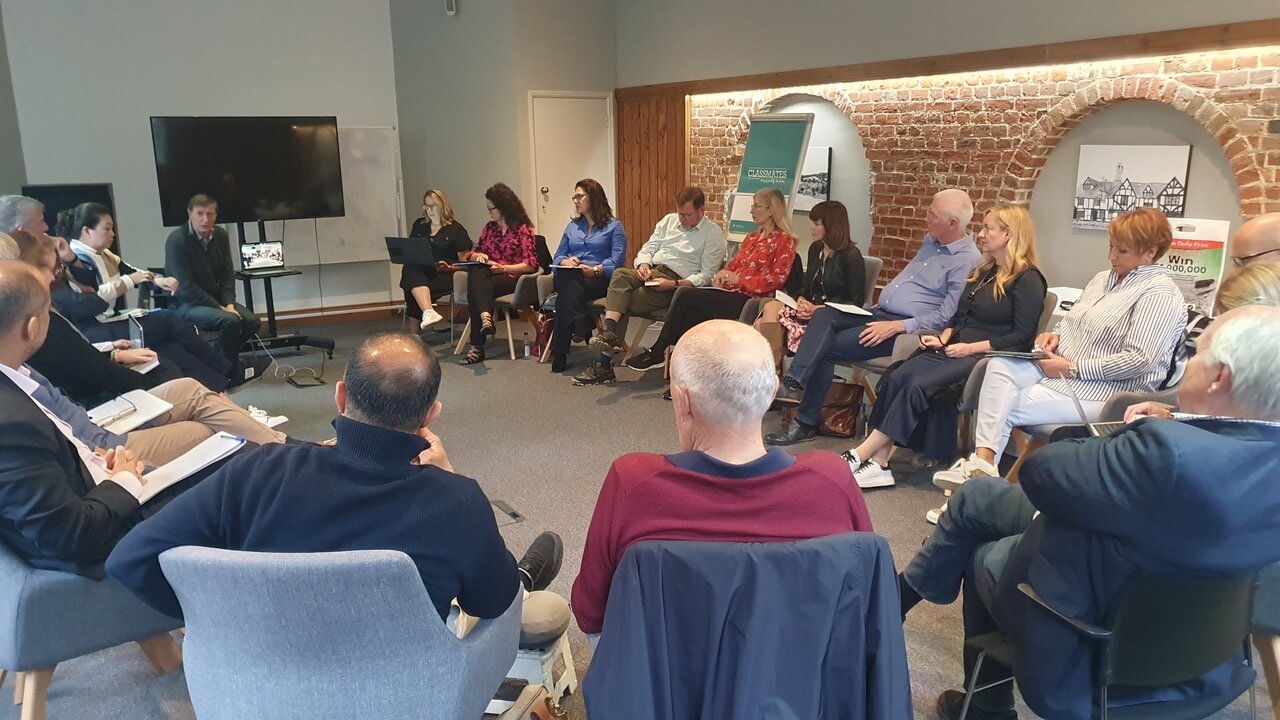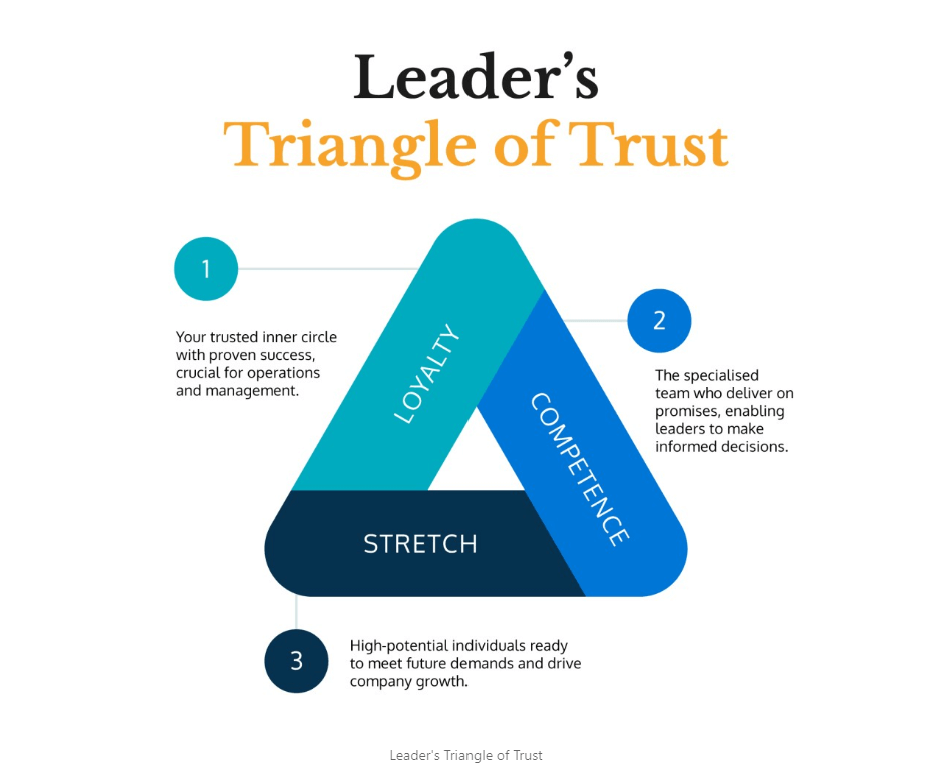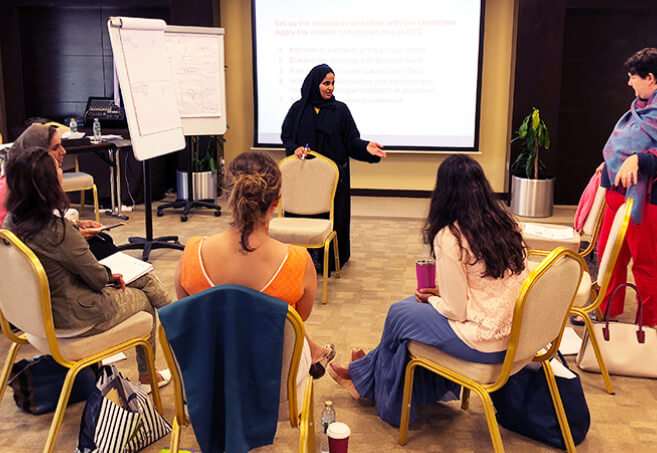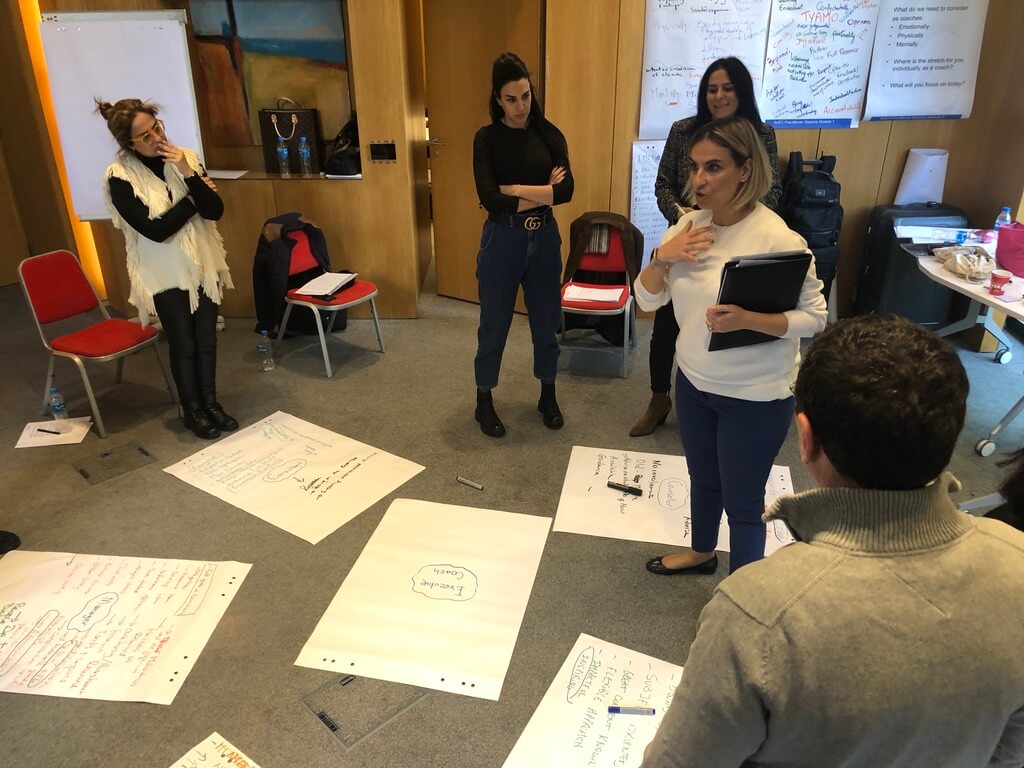Leadership skills are qualities or abilities possessed by individuals who can guide teams, oversee projects, and inspire growth and development in the process of achieving goals. Organisations will always seek and need leaders with strong leadership skills to drive and strengthen business success.
We all have leaders we look up to. However, we must also remember that leadership is a combination of skills that can be developed with time, effort, and practice. You can become an impactful leader with the courage and determination to reflect and improve all aspects of your life.
Leadership skills and self-improvement will always go hand in hand. We must first be able to embrace the change we need in ourselves to have the confidence and capacity to lead people.
At Kompass Consultancy, we offer a Coaching Skills Certificate programme to empower individuals and organisations to learn and acquire key leadership skills. In this blog, we’ll discuss why they’re important. Plus, ten top examples of leadership skills to develop in 2024.
Why Develop Leadership Skills?
Developing leadership skills is beneficial in all aspects and stages of our lives, personally and professionally. These skills enable us to enhance our relationships and forge new connections. In terms of career, having leadership skills can increase our chances of being employed and promoted.
Every job requires a unique balance of hard and soft skills. Hard skills are technical skills or industry knowledge and expertise, like marketing or financial management, needed to perform or deliver a particular job. On the other hand, soft skills, like communication and integrity, refer to your disposition or approach to work.
Leadership skills are a combination of soft skills that make you a great employee, workmate, and person in general. They are also transferable skills, meaning they will always be valuable in any job position and across industries.

10 Top Examples of Leadership Skills That Drive Personal and Professional Success
1. Integrity and Self-Awareness
Integrity is a quality that describes honest individuals with strong moral principles, while self-awareness is an ability to understand one’s own personality and motivations. Integrity and self-awareness are leadership skills that make you trustworthy and dependable.
You can depend on people with integrity to do the right thing, even when it’s hard or when no one is looking. Their self-awareness allows them to catch bias, address issues, and find ethical solutions.
2. Flexibility and Adaptability
Influential leaders have a positive attitude that cultivates a healthy work environment. They are flexible and adaptable to changing conditions. They accept that some things are inevitably beyond their control, so they nurture their resilience to improvise, recover, and grow from setbacks.
Flexibility and adaptability are leadership skills that allow you to thrive in uncertainty. These qualities make you eager to propose and brainstorm solutions, addressing urgent matters instead of dwelling on or being paralysed by an issue. They also focus on overcoming leadership blind spots for future challenges.
3. Communication
Communication skills include the awareness and understanding of both verbal and non-verbal cues. It is the ability to clearly relay information and discuss expectations for specific tasks and goals. Moreover, communication skills involve your manner of delivering presentations and engaging with your audience. It is knowing how to actively listen, giving everyone a chance to speak and be heard.
Your ability to negotiate also falls under communication skills. It is engaging in a conversation involving two or more parties and arriving at an equally beneficial solution or agreement. Negotiation is a leadership skill that manifests your capacity to resolve conflicts, build relationships, and execute contracts.
4. Problem-Solving
Problem-solving is a leadership skill that involves critical thinking. It is the ability to foresee and prevent potential issues through careful fact-finding and thorough data analysis. In times of crisis, leaders with problem-solving skills can remain calm, identify issues, and implement the appropriate course of action to sustain productivity.
Individuals who are impressive problem-solvers can view and present challenges or failures as opportunities for growth. They anchor their focus on progress over perfection.
5. Decision-Making
Decision-making is connected to problem-solving. It is the ability to efficiently discern the best solutions to problems through strategic thinking. Mastering this leadership skill requires you to develop your intuition and open-mindedness.
To make impactful decisions, you must know when to rely on your analytical skills and when to leverage team diversity for innovation, allowing for collaboration and quick turnaround times. You must also know what tasks or goals to prioritise.
6. Creativity
Creativity drives innovation. It is having the curiosity to explore new ideas and create meaningful solutions. To develop this leadership skill, you must practise thinking outside the box and find ways to expand your comfort zone. It is a quality that boosts your adaptability and competitive advantage. Your creativity will help you deliver unique and sustainable products and/ or services that stand out from the competition.
Harnessing creativity also contributes to work-life balance. It allows you to convey your ideas or vision clearly and engagingly. Moreover, having a creative outlet can help you destress. Creative activities, like doodling, painting, coloring, and other arts and crafts, enable you to express emotions, cope with overwhelming feelings, or release tension.
7. Time Management
Responsible time management reflects your ability to plan tasks, set goals, and allocate resources with allowance for sufficient breaks or downtime. Time management is a leadership skill that increases productivity and capacity to meet multiple deadlines while preventing burnout. It’s about dedicating enough time and effort to accomplish tasks based on priority and energy levels.
To improve time management, you must train your ability to set goals using the SMART technique. Your task objectives must be Specific, Measurable, Actionable, Relevant, and Time-bound. This leadership skill is about sharpening your concentration and delegation skills, as well as self-awareness and empathy, ensuring everyone’s well-being with time to recharge.
8. Unlocking Potential
Unlocking potential is about your desire for people to succeed with you. It’s acknowledging that having a billion-dollar idea may happen once in a lifetime, but with the right team, mindset, and leadership tactics, you can propel business growth and success with sustainable and healthy practices. To generate and make billion-dollar ideas happen, you can start unlocking potential by developing the billionaire mindset.

The billionaire mindset recognises the need to work with and care for a loyal and passionate team. It involves making tough decisions and humbling oneself when confronted with blindspots. This work disposition promotes teamwork, allowing you to learn from others and build on each other’s strengths. By unlocking your potential, you can inspire and motivate people around you to excel and deliver high-quality output.
9. Reliability
Mutual trust between the organisation and employees is vital to business success. To establish trust, you must prove your reliability. It’s about taking responsibility, showing initiative, and being accountable for your decisions and commitments.
To become more reliable, work on establishing consistency in how your thoughts and words translate into actions. For instance, you can set a standard for quality work and then strive to meet or surpass expectations every time.
10. Ability to Coach
Your coaching skills reinforce your desire for growth and ability to lead and guide people towards success. As you advance in your career, your tasks will change and evolve. Your ability to coach shows your willingness to help facilitate smooth transitions and seamless task turnovers.
Coaching is about training people by giving clear instructions, recognising accomplishments, and providing constructive feedback. This leadership skill contributes to your competency to manage tasks and oversee people while uplifting employee morale and engagement.
Takeaways on Key Leadership Skills to Develop in 2024
Developing leadership skills begins with a commitment to self-improvement. All the key leadership skills mentioned above can help individuals and organisations thrive in 2024 and pave the way for long-term success. Becoming a leader is both a personal and professional journey that takes constant practice and lifelong learning.
The first step to developing leadership skills is to assess your strengths and weaknesses and determine what you need to improve. You can focus on mastering one skill and slowly expand other skills. The great thing about leadership is that it is a collection of transferable skills that build or amplify other skills.
At Kompass Consultancy, we provide accredited coaching programmes to develop leadership skills in individuals so that they can be effective in their roles and empower their respective organisations. Our ICF mentor coaches will provide valuable insights and work closely with you to increase and refine your leadership skills while helping you clarify your values and vision for future success.







